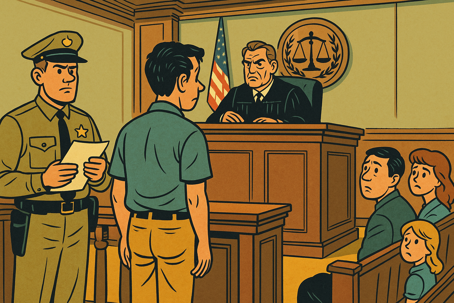If you or a loved one has recently been arrested in South Carolina, one of the first and most critical steps in the legal process is the bond hearing. Often held within 24 hours of an arrest, this hearing determines whether the accused will remain in jail until trial or be released—along with the conditions of that release.
When and Where Bond Hearings Take Place
In most South Carolina counties, bond hearings are held daily, including weekends and holidays. If someone is arrested and taken to jail, they will usually appear before a magistrate judge within 24 hours. If you're planning on turning yourself in, you want to do so 4-5 hours before the next scheduled bond court in order to complete initial processing at the jail.
The Purpose of a Bond Hearing
The judge’s role during a bond hearing is not to determine guilt or innocence. Instead, the judge evaluates two primary factors: whether the defendant poses a risk of fleeing before trial, and whether releasing the defendant would endanger the public or a specific individual. If the judge believes the accused is not a danger and is likely to return for court, bond is typically granted.
Types of Bond in South Carolina
Judges have several options when setting bond. A personal recognizance bond allows the defendant to be released without paying money up front, but they are legally obligated to return for court. A surety bond requires the defendant to pay a portion of the total bond amount through a bonding company. A cash bond must be paid in full directly to the court. In serious cases, such as murder or certain violent offenses, bond may be denied entirely. In those situations, a motion may later be filed to have a Circuit Court judge review the denial.
The exact amount of the bond is determined by the judge. For those with no prior record or more minor charges the court may grant a personal recognizance bond; allowing release from jail for free. In other cases a bond is more likely to be required (but sometimes the personal recognizance bonds are granted even in felony cases). In misdemeanor cases that amount is usually based on the possible fine. In felony or cases going to General Sessions court the amount is more likely to be determined by the judge taking into account the seriousness of the charges. In those situations, there is not standard or guideline range judges follow, and bond amounts can vary substantially depending on who the presiding judge is and exactly what the circumstances are. When we are retained for bond court appearances we will give the judge the information that they would need to help lower the bond amount as much as possible.
What Happens During the Hearing
At the hearing, the judge reads the charges, informs the defendant of their rights, and may ask about the defendant’s background, including employment, living situation, and any prior criminal history. The judge may also hear from the arresting officer or a prosecutor. Victims have the right to provide input, either in person or through written statements. Family members or other interested members of the public can also attend. In high-profile cases there can also be representatives of the media present.
Defendants can have an attorney at the hearing, but many people appear without one because the arrest has just occurred and they haven't retained counsel. However, if possible, it is highly beneficial to hire an attorney in time for the hearing.
The Defendant should not make any statements about the facts or evidence in the case. If they do, those statements can be later used against them in court.
Conditions of Release
Even when bond is granted, the judge may place specific conditions on the defendant. These may include staying away from the alleged victim, avoiding drugs and alcohol, not possessing firearms, or submitting to GPS monitoring or house arrest. Some defendants may be required to attend counseling or treatment programs. Violating any of these conditions can result in bond being revoked and the defendant being taken back into custody.
Can Bond Be Changed Later?
Bond is not necessarily permanent. If the circumstances surrounding the case change, or if the bond originally set is excessive or denied, your attorney can file a motion to have the bond reconsidered. Circuit Court judges typically handle these motions in felony cases. For example, if a defendant remains in jail for a long period awaiting trial, or if new evidence is discovered, the court may agree to reduce the bond or adjust the conditions of release.
Bond Is Not the End of the Case
Many people mistakenly believe that being released on bond resolves the matter. In reality, a bond hearing is just the beginning. Once released, the defendant still must prepare for trial or negotiate a resolution with the prosecutor. This stage of the process—gathering evidence, identifying legal defenses, and protecting your rights—is often even more important than the bond hearing itself.
Get Legal Help Right Away
If you or a family member is facing a bond hearing in Lexington, Columbia, or anywhere in South Carolina, it’s in your best interest to consult with a criminal defense attorney immediately. At the Law Office of James R. Snell, Jr., LLC, we help our clients navigate the criminal process from the very first court appearance.
Call us today at (803) 359-3301 for a free consultation. Same-day appointments are usually available, and we can begin work on your defense immediately.

